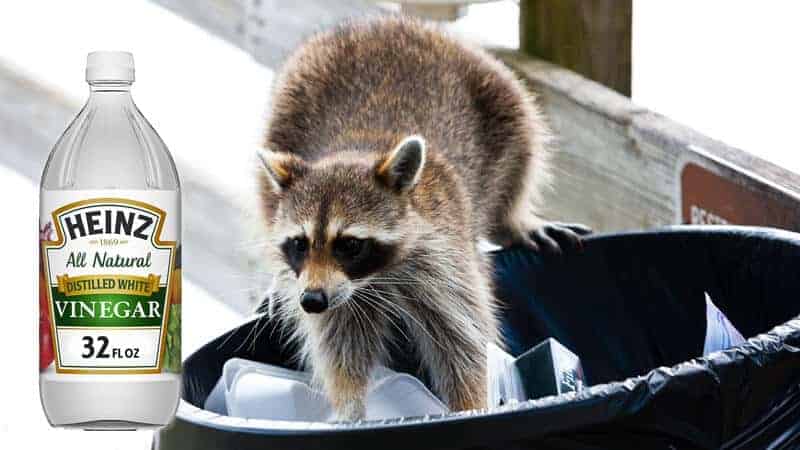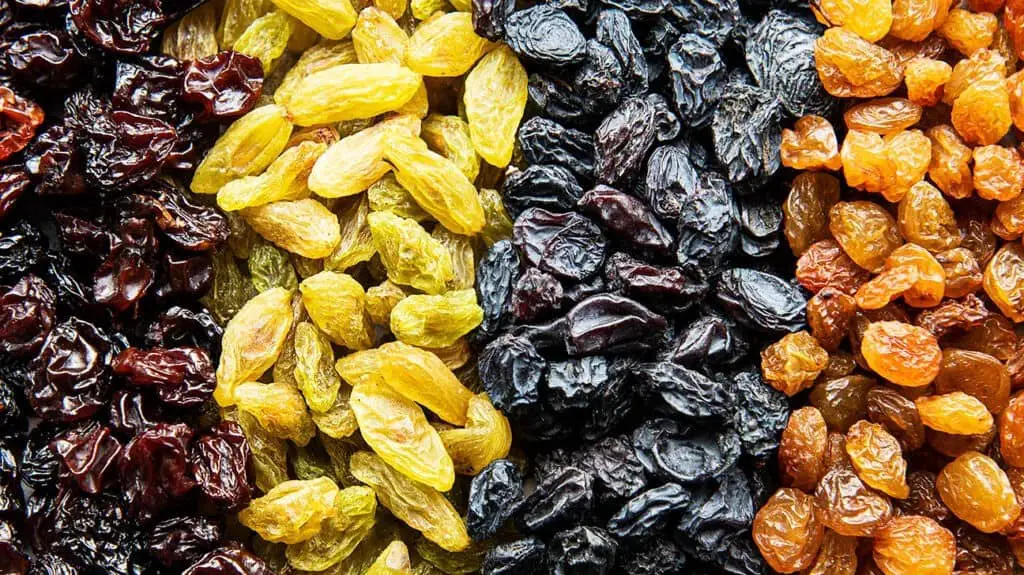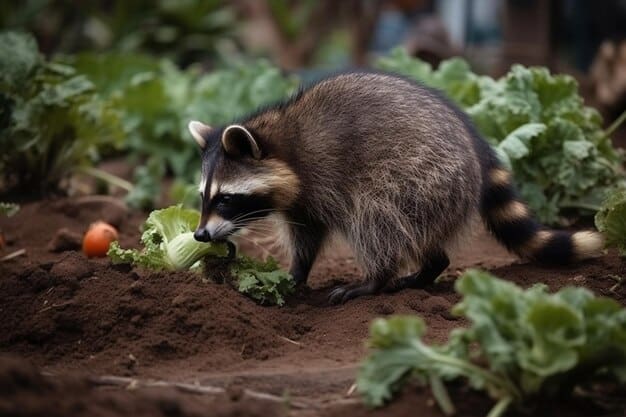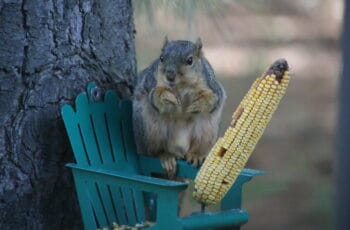Raccoons are highly intelligent and curious creatures that are known for their versatile diet. As omnivores, they can consume a wide range of foods, including both plant- and animal-based options. However, there are still some commonly asked questions when it comes to what raccoons can and cannot eat. In this essay, we will explore some of the most common inquiries surrounding their dietary preferences, including whether raccoons are fond of vinegar and garlic if raisins are toxic to them, and which vegetables are safe for them to consume.
Have you ever wondered if raccoons have a taste for vinegar? This acidic liquid is a staple in many households, but does that mean it’s attractive to these furry critters? This is just one of the many questions that arise when considering the eating patterns of raccoons. As opportunistic feeders, they have a wide variety of food choices available to them. However, vinegar can have a strong and pungent flavor, leading many to wonder if it is a deterrent or a treat for these animals. In this essay, we will delve deeper into the mystery of raccoons and their relationship with vinegar, as well as explore other commonly asked questions, such as their affinity for garlic, whether raisins are toxic to them, and which vegetables they can safely consume.
Do Raccoons like Vinegar?
Raccoons do not have a strong liking for vinegar. The pungent smell of vinegar can be a deterrent for these masked creatures. Vinegar has a strong and distinct smell that can irritate a raccoon’s sensitive nose, making it unpleasant for them to be around. This is why many people use vinegar as a natural repellent to keep raccoons away from their homes or gardens.

Do Raccoons like Vinegar?
Additionally, the strong smell of vinegar can also be a threat to a raccoon’s food sources. As omnivores, raccoons have a varied diet that includes both plants and animals. If they come across a food source that has been sprayed or soaked in vinegar, they are likely to avoid it due to the strong smell. In this way, vinegar also acts as a natural deterrent to keep raccoons from scavenging in certain areas. Ultimately, while raccoons may not necessarily dislike vinegar, its strong smell serves as a natural repellent for these curious creatures.
Do Raccoons eat Garlic?
Raccoons are omnivores and will eat a wide range of foods, including plants, fruits, insects, and small animals. However, while they have a varied diet, raccoons do not enjoy garlic. The pungent smell and taste of garlic can be overwhelming for these animals, and they tend to avoid it if given the choice. Many people use garlic as a natural repellent to keep raccoons away from their gardens or trash cans.
- Can raccoons eat Grapes? grape seeds? oranges?
- Can Raccoons eat Almonds? Can raccoons eat almond seeds?
- Can raccoons eat bananas? Which vegetables can raccoons eat?
- How to Install Windows 10 on Android Without a Root Computer
Furthermore, garlic can be harmful to raccoons if consumed in large quantities. Like all animals, raccoons have a certain tolerance for certain foods, and exceeding this tolerance can have negative effects on their health. Garlic contains compounds that can be toxic to raccoons in high doses, leading to digestive issues and even anemia. As a result, it is not recommended to intentionally feed raccoons garlic, as it can do more harm than good.
Are Raisins toxic for raccoons?
Raccoons are known for their opportunistic eating habits and will eat a wide variety of foods if they come across them. However, raisins are generally not a good choice of food for raccoons. Despite being a sweet and delicious treat for humans, raisins can be toxic to raccoons if consumed in large amounts. Raisins contain a compound called oxalate, which can lead to kidney failure and other health issues in raccoons.

Additionally, like other fruits, raisins contain a lot of sugar. This can also be harmful to raccoons in excessive amounts. Raccoons are not built to process high levels of sugar in their diet, as their natural diet consists of more protein and fat. Consuming too much sugar can lead to weight gain, tooth decay, and other health problems for raccoons. In conclusion, while a small number of raisins may not cause harm to raccoons, it is best to avoid feeding them this type of food to ensure their health and well-being.
Which vegetables can raccoons eat?
When it comes to vegetables, raccoons are not particularly picky eaters, but there are some that they may enjoy more than others. These omnivorous animals have a wide range of plant-based foods in their diet, including fruits, nuts, and vegetables. Some of the most common vegetables that raccoons can safely consume include carrots, kale, corn, sweet potatoes, and peas. Additionally, they may also be attracted to other types of produce, such as grapes and berries. However, it is important to note that raccoons are also capable of consuming more exotic vegetables that are not typically seen in their natural habitat, such as pumpkins and avocados.
It is always best to research or consult with a professional before feeding raccoons any new or unfamiliar vegetables to ensure their health and safety. To know more, read on to find out about the following vegetables, which are the most common types consumed by raccoons:

Raccoons can eat
20 Vegetable raccoons can eat:
- 1. Corn:
- Raccoons are known for their love of corn, especially the sweet varieties. They will often steal corn from gardens or even open bags in search of this tasty vegetable.
- 2. Carrots:
- Carrots are another popular vegetable for raccoons, as they are rich in nutrients and have a slightly sweet taste. Raccoons may also dig up carrots from gardens if they come across them.
- 3. Peas:
- Raccoons enjoy snacking on fresh or frozen peas, which are a great source of protein and fiber. They may also take advantage of pea plants growing in gardens.
- 4. Lettuce:
- Lettuce, particularly the more tender varieties, is a common raccoon food. They may also nibble on lettuce plants in gardens, leading to damaged crops.
- 5. Cucumbers:
- Cucumbers are soft and easy to digest, making them a popular vegetable for raccoons. They may also be drawn to the water content of cucumbers.
- 6. Spinach:
- Rich in iron and other nutrients, spinach is a nutritious food for raccoons. They may also forage for spinach in gardens or abandoned vegetable patches.
- 7. Bell peppers:
- Bell peppers are not only colorful and tasty, but they are also a good source of vitamins for raccoons. They may also enjoy the crunchy texture of peppers.
- 8. Broccoli:
- Broccoli is another nutrient-dense vegetable that raccoons may snack on. They may find it growing in gardens or scavenge for it in trash cans.
- 9. Cauliflower:
- Similar to broccoli, raccoons are known to eat cauliflower as well. They may also dig up cauliflower plants in gardens if they come across them.
- 10. Zucchini:
- Zucchini, with its tender flesh and mild taste, is a common favorite among raccoons. They may also raid zucchini plants in gardens if they are not properly protected.
- 11. Squash:
- Squash, whether winter or summer varieties, can be a tasty treat for raccoons. They may also come across squash plants on their foraging adventures.
- 12. Onions:
- While not preferred, raccoons may consume onions if they come across them. However, onions can be toxic to raccoons in large quantities.
- 13. Garlic:
- As mentioned before, raccoons do not particularly enjoy the strong taste and smell of garlic, but they may accidentally consume it if it is mixed in with other foods.
- 14. Green beans:
- green beans are another source of protein and fiber for raccoons. They may also come across green bean plants in their natural habitat.
- 15. Potatoes:
- Raccoons may consume potatoes, and they are quite adept at digging them up. However, uncooked potatoes can be toxic to raccoons, so it is not recommended to feed them.
- 16. Tomatoes:
- Raccoons may eat tomatoes, but they are not a preferred food. They may be more likely to nibble on ripe tomatoes from a garden than eat them in their natural state.
- 17. Radishes:
- Radishes are high in antioxidants and can be a nutritious snack for raccoons. They may also feed on radish plants in gardens if they come across them.
- 18. Beets:
- Beets are another root vegetable that raccoons may enjoy, although they are not as commonly consumed as other types of vegetables.
- 19. Cabbage:
- Reputed for its ability to upset the stomach, raccoons may eat cabbage if other food sources are scarce. They may also come across cabbage plants in gardens.
- 20. Turnips:
- Turnips, with their crunchy texture and mildly sweet taste, can be a tasty treat for raccoons. They may also be drawn to turnip plants in gardens or open fields.
FAQ
1. Are there any vegetables that raccoons find unappealing?
Yes, raccoons do not particularly enjoy strong-smelling or tasting vegetables such as garlic and onions. They also tend to avoid foods with a high sugar content, like raisins.
2. Can raccoons consume potatoes?
Raccoons may eat potatoes, but it is not recommended to intentionally feed them this vegetable. Uncooked potatoes can be toxic to raccoons, so it is best to avoid feeding them altogether.
3. Do raccoons only consume vegetables from gardens?
No, raccoons are opportunistic eaters and will forage for food in a variety of settings. They may come across vegetables in the wild or scavenge for them in trash cans and other human-inhabited areas.
Conclusion
In conclusion, while raccoons may have a varied diet, they do not particularly enjoy strong flavors or certain foods that may be harmful to their health. Vinegar, garlic, and raisins should be avoided, as they can be irritating or toxic to raccoons. However, there are many types of vegetables that these curious creatures enjoy, such as corn, carrots, and peas. Their love for these foods can lead them to gardens, trash cans, and other food sources. As with any wild animal, it is important to respect and understand their natural diet and to not intentionally feed them foods that may be harmful. By learning about the types of vegetables that raccoons commonly consume, we can better coexist with these fascinating animals in our shared environments.


